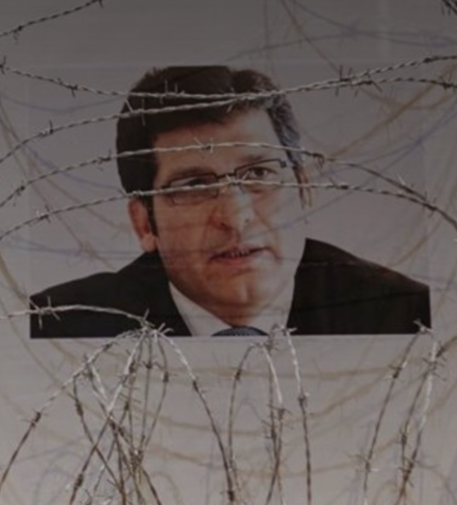Free Murat Arslan

In detention since 2016, Murat Arslan is a former Rapporteur of the Turkish Constitutional Court and President of the now dissolved Association for the Union of Judges and Prosecutors (YARSAV). Murat Arslan, who is a staunch supporter of the independence of the judiciary, won the 2017 edition of the Vaclav Havel Human Rights Prize, which honours outstanding civil society action in defense of human rights.
The International Association of Judges and its European Branch, the European Association of Judges, launch the initiative of starting a movement to pressure the Turkish government to grant Murat Arslan immediate conditional release, according to the Turkish law.
We publish first of all here a message from our Turkish colleague Murat Durmaz, informing us about the denial from Turkish authorities of the application of the Turkish law which would allow to Murat Arslan to be finally freed after 8 years of harsh and unjust imprisonment. Also on behalf of the IAJ President and of the Presidency Committee of the IAJ, of the President of the EAJ and of the EAJ Board, we asked all IAJ and EAJ member associations to kindly spread this message among judges, prosecutors, authorities and organizations of their respective Countries, in order to make pressure on the Turkish authorities for immediate conditional release of Murat Arslan, a true champion of judicial independence.
We asked member associations also to inform us about the publicity they would give to this initiative, as well as of possible replies and feedbacks, so that we may publish them in this special part of our web site, fully dedicated to this issue.
Letter of Murat Durmaz:
Dear Friends and Colleagues,
I write to you with a heavy heart regarding a matter that requires our immediate attention and action. As many of you are aware, Murat Arslan, the President of the Turkish Association of Judges and Prosecutors, has been sentenced to a 10-year jail term due to his unwavering commitment to an independent judiciary and human rights. For nearly 8 years, he has endured incarceration.
Under normal circumstances, according to Turkish criminal law, a convict who has served three-quarters of their sentence is eligible for conditional release unless there are substantial grounds or they pose a threat to society. Historically, the Prison Administrations have adhered to this principle, granting conditional release automatically, as prescribed by law.
However, in cases where political motivations taint the sentencing, we have witnessed a troubling trend. Certain Prison Administrations have begun to wield their discretionary powers arbitrarily, rejecting applications for conditional release without valid justification. This is not a systemic issue dictated by the Justice Ministry but rather a reflection of individual biases within some Prison Administration Committees.
For instance, we have observed that when a convict is transferred to a facility outside Ankara, conditional release is granted as per the law. This disparity reveals a deeper concern where personal vendettas or prejudices against certain individuals, including Murat Arslan, influence critical decisions regarding their legal rights.
Recently, Murat Arslan’s application for Conditional Release was unjustly rejected, scheduling the next review for July. (“omissis”) It is evident that this issue extends beyond our President to encompass all individuals imprisoned under politically motivated terrorism charges.
Therefore, we urge all member associations to join us in sending a collective appeal to the Turkish Ministry of Justice, highlighting the arbitrary nature of these decisions. These letters, written in English, should outline our concerns and call for immediate corrective action. Furthermore, we propose publishing these letters on the International Association of Judges (IAJ) website to raise awareness among Turkish journalists and the public, fostering a dialogue on the importance of fair and unbiased judicial practices. (Address: Adalet Bakanlığı 06659 Kızılay Ankara Turkey)
We encourage Presidents of individual associations and umbrella organizations such as EAJ and IAJ to endorse this appeal by signing and sending the letters. Additionally, we welcome collaboration with other like-minded organizations to amplify our message.
The more letters received by the Ministry of Justice, the greater the likelihood of systemic reforms to curb arbitrary decisions and uphold the principles of justice and fairness. Please feel free to reach out to me for any further information or assistance.
Furthermore, I propose creating a dedicated section on the EAJ website to centralize information about this initiative, enabling easy sharing across various platforms.
Thank you for your attention and anticipated support in this crucial matter and we are open to any additional deliberations on this issue.
Warm regards,
Murat Durmaz

